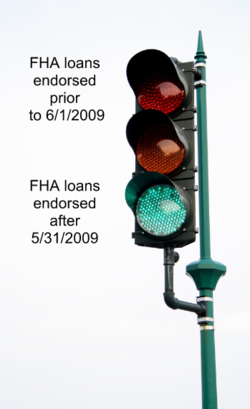This is a question that I’m often asked by Washington home owners who are considering refinancing their current conventional mortgage using the HARP 2.0 program. The answers I’ve received from private mortgage insurance companies vary from “it’s up to the mortgage servicer” to “when the new loans principal reaches 78% loan to value”.
If your current loan to value is triple-digit because of being underwater, the thought of paying private mortgage insurance for years may not sound appealing. Here are some points I encourage my clients to consider:
- determine when your existing private mortgage insurance is set to terminate. If it’s before December 2013 (assuming the HARP program is not terminated early, which Fannie and Freddie have reserved the right to do) you could consider delaying your HARP refi so that you won’t have PMI on the new loan.
- compare your existing principal and interest payment (excluding the private mortgage insurance) to the proposed HARP payment including principal, interest plus mortgage insurance. Many of my clients are saving hundreds of dollars each month – even with keeping their mortgage insurance.
- consider how long you plan on keeping your home and what your alternatives may be. If you are underwater and are planning on staying in your home or eventually converting it to a rental property, reducing your payment now may be beneficial. If you are planning on doing a short sale, then refinancing at this time would probably not pencil out.
With HARP 2.0 refinances, when you have private mortgage insurance, most pmi companies are transferring the pmi certificates over to the new lender without any issues. The pmi rates stay the same so if you’re currently paying private mortgage insurance monthly, you can estimate that the new pmi payment will be roughly the same with your new mortgage payment.
If you have lender paid mortgage insurance, often times it was paid for upfront and there will be no private mortgage insurance for the home owner to pay. Sometimes the lender paid mortgage insurance (LPMI) was being paid monthly by the lender and in those cases, the pmi company may convert the policy to “paid monthly” so the borrower can assume it.
If you’re interested in a mortgage rate quote for a HARP 2.0 refinance for your home located anywhere in Washington state, contact me.









Recent Comments